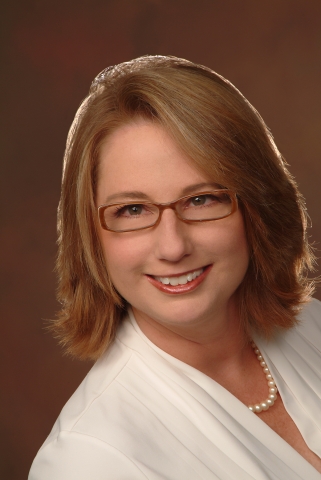Trade show Leader: IAEE’s Cathy Breden

With 20-plus years in the trade show industry, Cathy Breden, CMP, CAE, currently is executive vice president and COO of the International Association of Exhibitions and Events (IAEE).
At IAEE, she has responsibility for managing the day-to-day operations of the association, including overseeing marketing and communications, membership, education, conventions and events, and administration.
In addition, she also serves as the managing director of the Center for Exhibition Industry Research (CEIR), whose primary purpose is to promote the growth, awareness and value of exhibitions and other face-to-face marketing events by producing and delivering research-based knowledge tools.
Breden earned the Certified Meeting Professional (CMP) designation in 1990 and the Certified Association Executive (CAE) designation in 1995.
She took time from a busy travel and day-to-day schedule to talk about what means the most to her about the industry.
TSNN: How did you get started in the industry?
Cathy Breden: I was 23 when I attended my first trade show. It was a trade show for the solid waste industry, and I think that show is now known as Waste Expo. It was held at the Orlando Convention Center. I was in awe of the size of the show and the large number of people, and I have to admit, the parties in the evenings.
Six years later, I started working for associations, and of course, associations hold trade shows. When I was the Executive Director of the New Jersey Academy of Family Physicians I was responsible for the trade show. If I would have known that there was an association for the trade show industry I would have joined NAEM at the time to learn, as I did not know what I was doing!
TSNN: How different was the industry when you started, compared with today?
Breden: Some parts of the show are exactly the same as they were then: the vertical and horizontal show floor with pipe and drape, signage, and badge holders identifying and categorizing the attendees and exhibitors. What is different today in terms of how the show looks is technology … digital signage, exhibitors using technologies in their booths, Twitter walls creating engagement. Technology has forever changed not just how the show looks, but also how people engage with one another. Remember, it was just a few years ago that the buzzword was “Birds of a Feather.” Organizers were manually creating groups for like-minded people to find and engage with one another. Now, technology does that; people are able to create their own groups if they so choose.
TSNN: What are some of the lessons you have learned being a part of this industry?
Breden:
· If you want a 9 to 5 career, the trade show industry is not for you. There are early mornings and late nights. If you like solving problems and being challenged each day, it is a great career!
· Change is inevitable and it should not be feared. Look at change as an opportunity.
· We serve many audiences and each of those is just as important as the other. In order for a show to be successful, the organizer has to deliver a quality audience and mix of exhibitors. The contractor(s), venue, and hotel(s) are also important to the success of the show. The value has to be there for each of these audiences.
TSNN: What is your favorite part of being in the industry?
Breden: This is an easy one. The people are my favorite part. For me, having had the opportunity to visit other countries and experience many different cultures has made me who I am. There are people I met 25-30 years ago who are great friends. We have watched our kids grow up, divorces and marriages, and parents pass away. And, we have also experienced together the grief of colleagues who have passed.
TSNN: Anything you miss that you wish was still around?
Breden: Honestly, I can’t think of anything I miss, other than those colleagues who are no longer with us. I do kind of miss the stuffing of registration bags! In those days we sold a lot of inserts and many times there would be a gift in the bag. We would fly the staff in a day early and spend four to five hours going around in a circle stuffing those darn things. We had members who would come in early and look forward to stuffing with us. It was a tradition and a good team building experience.
TSNN: Anything you are thrilled went away?
Breden: Yes, printing letters and stuffing envelopes. That’s going back a long time!
TSNN: What do you hope your personal impact on the industry is?
Breden: I hope that through my work at IAEE I am known for servant leadership. I am a loyal person and like to make a difference in other’s lives.
TSNN: Any wise words about what this industry means to you overall?
Breden: I am so fortunate to have been in the right place at the right time. Luck, along with a lot of hard work, has given me a career I never would have imagined in my 20s. Time goes by quickly and the years go by more quickly than ever before. I try to ‘stop and be present’ to appreciate and imprint these wonderful experiences.


Add new comment